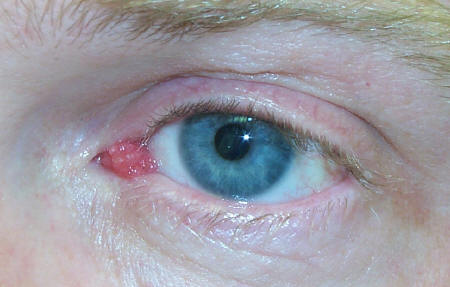Caruncular Tumors

Tumors of the caruncle: a clinicopathologic correlation.
- Lesions from the caruncle are uncommon.
- On account from the histological composition of the caruncle, which includes, in adds to to conjunctiva, hair roots, sebaceous glands, sweat glands, in adds to to accessory lacrimal tissue, the caruncle may possibly develop lesions which may possibly be similar to those found inside the skin, conjunctiva, or lacrimal gland.
- Clinical preoperative diagnosis is very difficult and reached only in about 50 % of of the cases.
- The the greater part of lesions of the caruncle tend to be benign, mainly nevi. Noted malignant lesions are rare but can be potentially fatal.
- Although malignancy is clinically overestimated, any suspected malignant lesion ought to be excised and examined histopathologically by a skilled pathologist.
- The caruncle (from Latin caro=flesh) is a soft, pink, ovoid body, bout 5 mm high and 3 mm broad, situated in the lacus lacrimalis medial to the plica semilunaris.
- It is more prominent on lateral gaze and is retracted on medial gaze.Lesions of the caruncle are uncommon. On account of the fact that the caruncle harbours skin elements, such as hair follicles, sebaceous glands, sweat glands, and accessory lacrimal tissue, the lesions developing from the caruncle are very diverse, making their clinical diagnosis very difficult.
- The vast majority of lesions of the caruncle is benign, although rare malignant lesions have been also reported.

